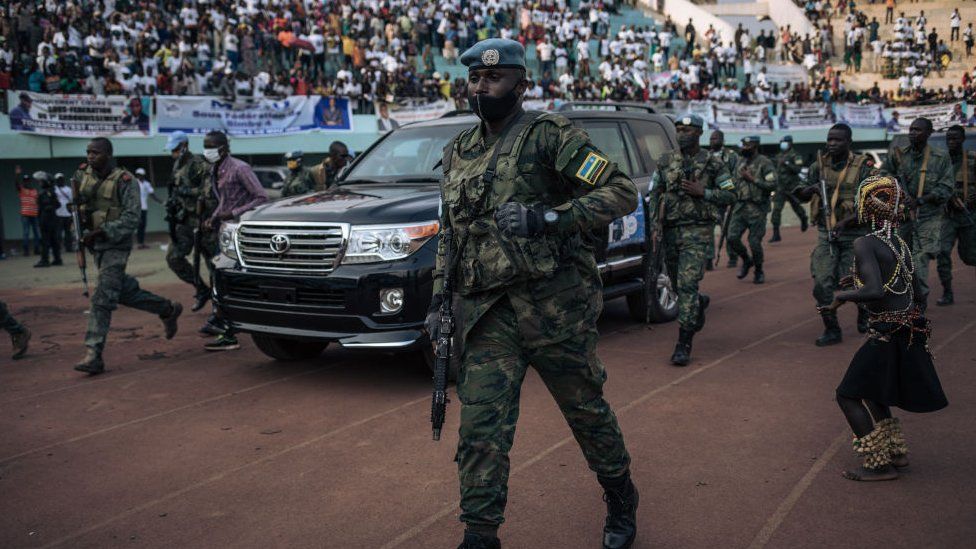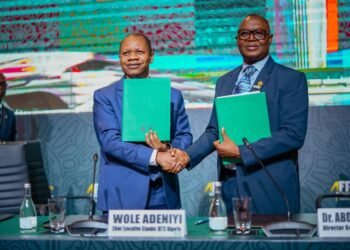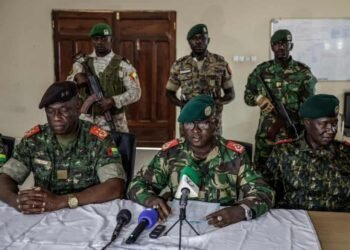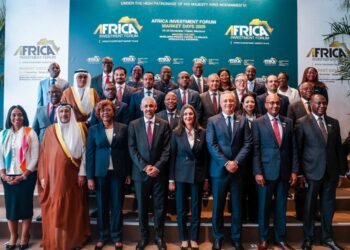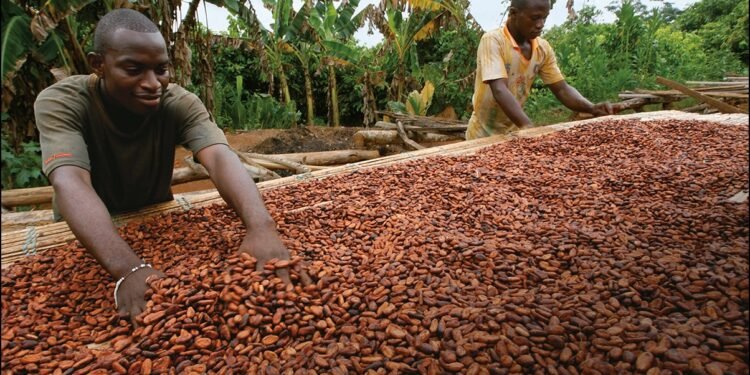Authorities in Bangui have announced that Rwanda and Russia have sent troops and supplies to the Central African Republic (CAR) to help counter a surge in violence by rebel groups ahead of the country’s December 27 election.
Reports indicate that security forces and U.N. peacekeepers have been battling rebels who have occupied towns and roads outside the capital.
The authorities accuse Former President, Francois Bozize, whose presidential candidacy was rejected by the courts, of plotting a coup with several militant groups. A spokesman for Bozize’s KNK party has denied the accusations.
CAR President, Faustin-Archange Touadera, who is seeking re-election, came to office in 2016 after Bozize was overthrown in a rebellion three years earlier. He has struggled to restore stability and swathes of the country remain beyond government control.
The CAR government said in a statement that Rwanda and Russia “took steps to provide effective support which arrived on Central African territory today.”
Russia, which has previously sent arms and military contractors to CAR as it seeks to increase its influence in Africa, has not commented on reports in the media it had sent in troops and military aid.
But a government spokeman, Ange Maxime Kazagui said over the past few days, Russian planes have landed carrying “several hundred soldiers and heavy weapons” to the country to support the government.
Presidential spokesman, Dmitry Peskov also told journalists that Russia considered the situation in CAR “a matter of serious concern”. President Touadera has friendly ties with Moscow and has a Russian national as a security adviser.

Additonally, Mr Kazagui said Rwanda has sent several hundred men who are on the ground and have started fighting.
The number of additional Rwandan soldiers deployed has not been given but Rwanda’s Defence Ministry said the operation was done “under existing bilateral agreements” with CAR.
The newly deployed forces will have “different rules of engagement which will enable them to protect our forces from being attacked, and protect civilians,” Rwandan President Paul Kagame said.
At least 750 Rwandan soldiers and police officers have been operating under the peace-keeping force, United Nations Multidimensional Integrated Stabilization Mission in the Central African Republic (MINUSCA)
MINUSCA had earlier reported that there was a “slight lull” near the town of Yaloke following an attack over the weekend by armed groups. A security and humanitarian source also said the town of Mbaiki, about 100 km from Bangui was calmer following recent clashes.
President Touadéra has insisted the election will go ahead, saying the presence of the army and UN peacekeepers means people have nothing to fear.
But opposition parties, including that of Mr Bozizé, have called for the vote to be postponed “until the re-establishment of peace and security”.

On 3 December, CAR’s Constitutional Court ruled that Mr Bozizé did not satisfy the “good morality” requirement for candidates because of an international warrant and UN sanctions against him for alleged assassinations, torture and other crimes during his rule.
Also, the United States, France and Russia have accused Bozize of seeking to disrupt the election.
The CAR is one of Africa’s poorest and most unstable countries, even though it is rich in resources like diamonds and uranium. The UN estimates that half of the population are dependent on humanitarian assistance and up to a fifth have been displaced.

